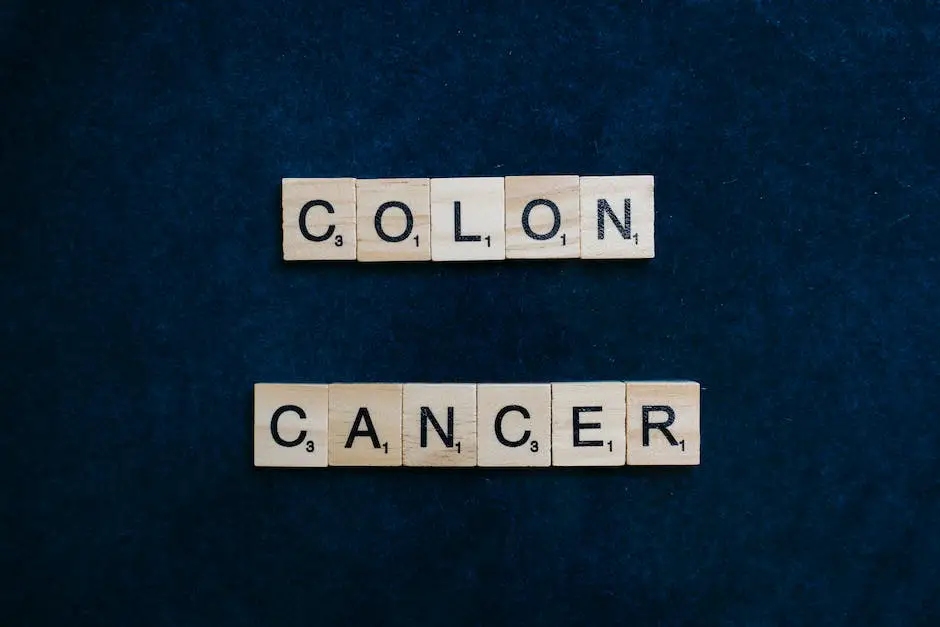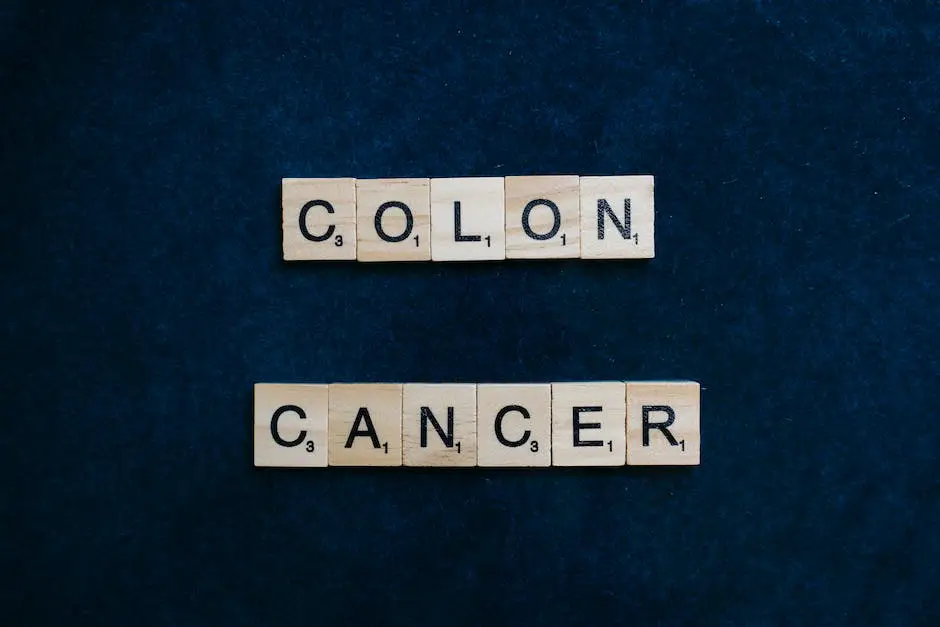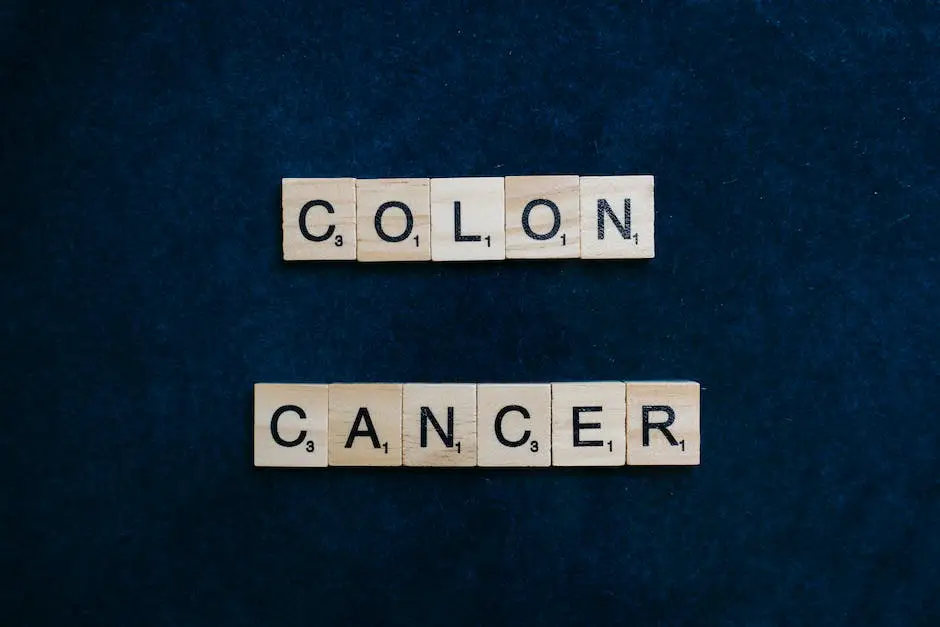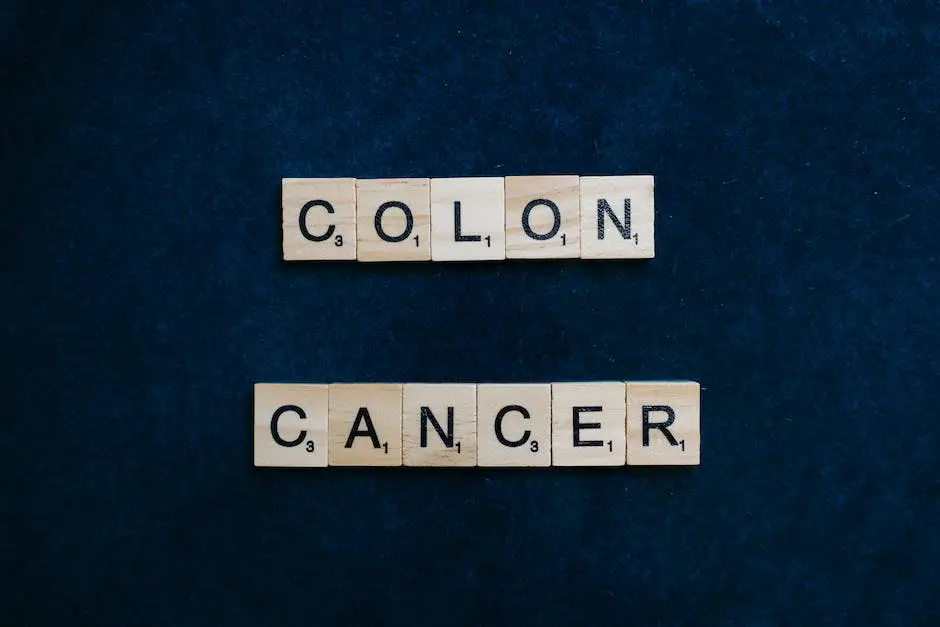Colon cancer, a prevalent yet serious health condition, continues to affect a significant chunk of the global population. Although this disease has numerous symptoms and side effects, one of the most debilitating but often overlooked factors is fatigue. Having a comprehensive understanding of your body and the changes that occur, particularly when dealing with colon cancer, is critical to managing your health and improving your quality of life. This article seeks to provide insight into colon cancer, focusing in particular on the relationship between the disease and fatigue, and present practical methods and strategies to manage this condition.
Understanding Colon Cancer
Understanding Colon Cancer
Colon cancer, also known as colorectal cancer, usually starts as small, noncancerous (benign) clumps of cells called polyps that form on the inside of the colon. Over time these polyps can become colon cancers. Colon cancer cells will invade and damage healthy tissue that is near the tumor causing many complications.
Who is at Risk?
The risk factor for colon cancer is highly influenced by age, as it is most commonly diagnosed in people over 50. However, it can occur at any age. Various factors further increase the risk including a personal or family history of colorectal cancer or benign (noncancerous) colorectal polyps, inherited syndromes that increase cancer risk, inflammatory intestinal conditions, certain genetic mutations, diet low in fiber and high in fat, obesity, sedentary lifestyle, diabetes, smoking, alcohol, radiation therapy for cancer.
Common Symptoms to Look Out For
The common symptoms of colon cancer vary based on the size and location of the cancer. Some of the typical symptoms include change in bowel habits including diarrhea or constipation or a change in the consistency of your stool that lasts longer than four weeks, rectal bleeding or blood in your stool, persistent abdominal discomforts such as cramps, gas, or pain, a feeling that your bowel doesn’t empty completely, weakness or fatigue, unexplained weight loss, irritable bowel syndrome (IBS), iron deficiency anemia.
Colon Cancer and Fatigue
Fatigue related to colon cancer is different from everyday tiredness. Cancer-related fatigue is often more severe, lasts longer and disrupts your daily routine and quality of life. It can be present all the time or can come and go.
Fatigue in colon cancer patients may be caused by the cancer itself, as it uses your body’s nutrients, leaving less available for normal functions, including energy. It can also result from anemia, a condition involving decreased red blood cells or hemoglobin, which are responsible for carrying oxygen to the body tissues. Cancer and treatments for cancer can both contribute to anemia.
Another cause of fatigue is a change in normal sleep patterns caused by pain, nausea, anxiety, or depression. Treatments such as chemotherapy and radiation therapy can also cause fatigue, as they require significant energy for your body to heal and recover.
Knowing about colon cancer, its potential risks, symptoms, and the management of these symptoms, including fatigue, can greatly influence early detection and timely treatment. Regular medical check-ups, especially for those over 50 or those with a family history of colon cancer, can help diagnose this disease in its initial stages, which improves the likelihood of successful treatment.

The Relationship between Colon Cancer and Fatigue
Diving Deep into the Understanding of Colon Cancer
Primarily known as colorectal cancer, colon cancer is a disease in which cancer cells originate in the colon or rectum. Playing an essential role in digestion, the colon forms most of the lower intestine. In the event of malignancy or unusual cell growth in this area, a person may develop colon cancer.
Fatigue as a Symptom of Colon Cancer
One prevalent symptom of colon cancer is fatigue. Fatigue, in this context, is more than just feeling tired; it’s an excessive whole-body tiredness that isn’t relieved by sleep. The underlying reasons for fatigue in colon cancer patients are multifaceted, including both the physiological impact of the disease itself and the psychological strain of a cancer diagnosis.
Physiological Causes of Fatigue in Colon Cancer Patients
From a physiological perspective, cancer cells often use the body’s energy faster than normal cells, leaving an individual feeling exhausted. Also, a cancer tumor can cause a significant amount of blood loss over time, leading to anemia, a condition marked by debilitating fatigue.
Moreover, colon cancer frequently leads to malnutrition, as the disease can affect the body’s ability to absorb nutrients. Malnutrition, in turn, can exacerbate fatigue as the body lacks the necessary nutrients to produce energy effectively.
Psychological and Emotional Contribution to Fatigue
Besides physiological causes, the psychological and emotional toll of having colon cancer also triggers fatigue. Stress, anxiety, and depression, which are common among cancer patients, may further intensify feelings of exhaustion. Learning to cope with these emotions and managing mental health is essential for improving overall well-being and combating fatigue.
The Impact of Cancer Treatments on Fatigue
The connection between colon cancer treatment and fatigue is also worth noting. Treatments such as chemotherapy and radiation therapy are renowned for the fatigue they induce. These treatments work by killing cancer cells, but they can also damage healthy cells, leading to numerous side effects – fatigue being one of the most common.
Chemotherapy drugs can lower the level of red blood cells which carry oxygen in the body. This depletion can result in anemia, thereby increasing fatigue. Similarly, radiation therapy can lead to fatigue that gets worse over time, usually peaking around the middle of the treatment cycle.
Managing Fatigue in Colon Cancer Patients
The role of fatigue management in cancer care is of the utmost importance. Key strategies can include anemia treatments, dietary adjustments, physical exercise to build strength and stamina, as well as psychological support to handle stress and anxiety. Medical practitioners often advise patients to eat a balanced diet, keep themselves well hydrated, and prioritize quality rest to effectively control fatigue. Furthermore, supportive mental health care and suitable medication can aid in handling symptoms of depression and anxiety which can exacerbate fatigue.
Most often, a cooperative approach with the healthcare team can effectively prevent or manage fatigue, ultimately enhancing the quality of life for those battling colon cancer.

Management and Treatment of Fatigue
Comprehending Fatigue in Colon Cancer Patients
To differentiate, fatigue is not merely feeling tired; instead, it’s characterized by a persistent weariness that doesn’t improve with rest, and it can severely disrupt a patient’s daily routine. Fatigue is a frequent complaint among colon cancer patients, attributable to both the disease itself and its respective treatments. It’s crucial for patients to understand that experiencing fatigue is not only common but also a legitimate issue that can be managed effectively with appropriate measures.
Managing Fatigue through Lifestyle Modifications
Lifestyle changes can greatly contribute to the management of fatigue in colon cancer patients. Adequate rest and sleep are essential in combating fatigue. Short naps or breaks throughout the day may help, but should not replace a good night’s sleep. Regular exercise can also improve energy levels. While it may seem counterintuitive for tired patients, light activities such as short walks or simple stretching exercises can actually reduce fatigue.
Furthermore, stress management strategies can also lower fatigue levels. Relaxation techniques such as deep breathing, meditation, and yoga may help patients feel more rested. Additionally, prioritizing tasks and delegating where possible can reduce the physical and emotional strain associated with fatigue.
Dietary Changes to Manage Fatigue
Proper nutrition plays a crucial role in managing fatigue in colon cancer patients. Consuming a balanced diet can add to the overall energy level of patients. Meals should be rich in protein and calories which are essential for repairing and building tissues, especially important for those undergoing cancer treatments.
Hydration is also an important factor in managing fatigue, as dehydration can exacerbate feelings of exhaustion. Drinking plenty of fluids throughout the day, preferably water, can help keep energy levels stable.
Physical Therapy and Medications
Physical therapy can be beneficial in managing cancer-related fatigue. Therapists can provide individualized exercise programs to help patients maintain their physical strength and endurance while coping with fatigue.
In some cases, medications might be recommended to help manage fatigue. These might include drugs to help with associated issues such as nausea, pain, anxiety, depression, and sleep disorders that could be contributing to the fatigue.
Recognizing and Addressing Chronic Fatigue
It’s crucial not to dismiss the profound repercussions fatigue can have on your overall well-being and daily life. If fatigue continues to intensify despite changes to diet, rest, and lifestyle habits, it is advisable to seek medical counsel. If symptoms of fatigue are paired with chest discomfort, shortness of breath, severe disorientation, extreme abdominal pain, or any other significant shifts in physical or mental capabilities, immediate consultation is essential.
Furthermore, maintaining a regular dialogue with your healthcare professionals about your levels of fatigue can provide more precise and personalized strategies for managing it according to your specific needs and condition.

Photo by nicotitto on Unsplash
Personal Stories and Advice on Living with Fatigue & Colon Cancer
Personal Account: Coping with Fatigue as a Colon Cancer Patient
Consider the case of John, a 58-year-old entrepreneur diagnosed with stage 3 colon cancer. John had the tumor surgically removed, but he required subsequent chemotherapy treatments to eradicate leftover cancer cells. Unfortunately, the chemotherapy caused significant fatigue, hindering his ability to carry out routine activities.
To manage his fatigue, John made adjustments to his daily agenda, reserving his energy for the most vital tasks and allowing for regular rest periods in between. In addition, he discovered the importance of implementing a balanced diet and habitual exercise to enhance his energy levels. He successfully used these strategies to mitigate fatigue and would recommend them to others in similar circumstances.
Case 2: Advice from a healthcare provider
Dr. Susan, a healthcare provider specializing in treating colon cancer, emphasizes the need for rest, but also maintaining some physical activity to combat fatigue. Regular, light exercise can help to promote better sleep and improved energy levels. Additionally, eating small, frequent meals throughout the day can maintain your energy levels and prevent nausea and indigestion, common side effects of cancer treatment.
Dr. Susan also highlighted the importance of emotional support. Living with colon cancer and experiencing fatigue can be quite distressing, so it is essential to tap into a good support network, be it friends, family, or a support group. Being open about your journey can provide mental strength, decreasing the burden of the disease.
Case 3: Coping Strategies
Laura, a 65-year-old colon cancer survivor, found fatigue to be one of the most persistent symptoms during her cancer journey. For Laura, seeking holistic approaches complemented her medical treatment. She took up relaxation techniques like yoga, meditation, and acupuncture, which, she believes, helped manage fatigue.
While coping with fatigue, some patients find counseling beneficial. A trained therapist can offer strategies to manage stress and anxiety, which can amplify the feelings of fatigue. Counseling can also provide support in coping with the emotional toll of living with a chronic illness.
Case 4: Healthcare insights
Professor Michael, a medical researcher focusing on colon cancer, suggests ensuring proper hydration and nutrition. Dehydration and malnutrition can exacerbate fatigue, so drinking plenty of fluids and maintaining a balanced diet can help. He also recommends keeping a journal to track fatigue and its triggers, which can be useful information for healthcare providers in managing the symptoms better.
Everyone experiences fatigue differently, so what works for one may not work for another. It is crucial for each person to explore various strategies, like those shared above, to find the most effective way to manage fatigue related to colon cancer. Patients shouldn’t hesitate to communicate their symptoms and concerns to their healthcare providers. Together, they can find the best approaches to manage fatigue while tackling colon cancer.

Dealing with colon cancer and the associated fatigue is certainly challenging, however, remember you are not alone. Learning about the underlying mechanisms of this disease can empower you to take proactive steps in managing your health. The various strategies for managing fatigue discussed, although not exhaustive, can serve as starting points towards improving your personal situation. Additionally, hearing firsthand experiences from patients and health professionals provides a concrete perspective and gives you an idea of the possibilities in handling this journey. Always remember, no matter your circumstances, seeking professional medical advice when necessary is paramount.
